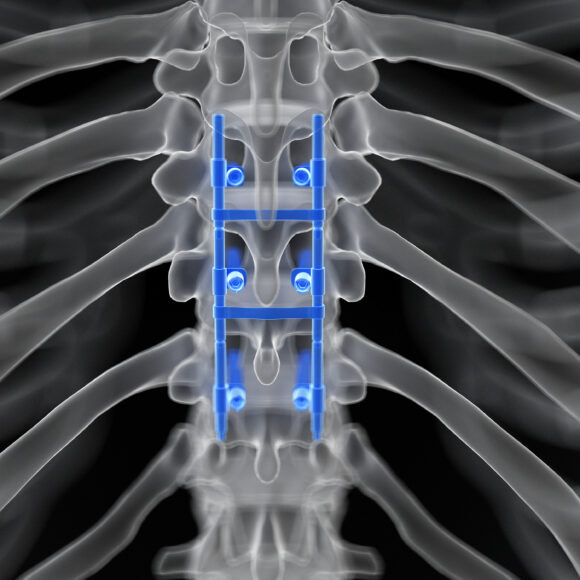A federal appellate court overturned a $5.5 million jury verdict against a Missouri orthopedic surgeon who is accused in a whistleblower lawsuit of taking kickbacks from a spinal implant distributor owned by his fiancee.
A panel of the 8th Circuit Court of Appeals ruled Tuesday that improper instructions were given to the jury that found Dr. Sonjay Fonn of Cape Girardeau and distributor Deborah Seeger liable for violations of the federal False Claims Act. The panel said the jury should have been told that the government must show not only that Fonn accepted kickbacks, but also that the payments influenced his decision to use those particular implants.
The 8th Circuit’s ruling allows the Department of Justice and the whistleblowers to try the case again. But Fonn’s attorney, James G. Martin with the Dowd & Bennett law firm in St. Louis, said he doesn’t believe the government has the evidence it needs to win a jury verdict against his client under the standard set by the 8th Circuit.
“The government never had any evidence that the alleged kickbacks influenced his decisions,” he said.

Martin said even with the lower standard of causation allowed by the US District Court, the jury exonerated both Fonn and Seeger on one of the government’s three counts, found in favor of Fonn on a second count and awarded no damages against either of the plaintiffs on a third count.
The evidence presented at trial did, however, persuade a jury to award $5,495,931 in damages, which is triple the amount Fonn billed Medicare and Medicaid for disputed spinal fusion surgeries.
Attorneys for the US Justice Department said in a single year, Seeger was paid $1.3 million in 50% commissions from spinal implant manufacturers who sold products for Fonn’s surgeries. She in turn, is alleged to have rewarded him lavishly with purchases that included home improvements and a Sea Lion yacht.
The US Justice Department filed criminal charges against Fonn and Seeger in 2014, but dismissed the indictment a year later.
“We convinced them that there was no criminality,” Martin said.
The group of Cape Giradeau physicians, however, continued with a False Claims Act whistleblower lawsuit that they filed in 2012 against Fonn, Seeger and Fonn’s medical practices. The jury returned its multi-million verdict in 2018. Fonn and Seeger appealed.

The appellate panel said the US District Court Judge erred by instructing the jury that the government must prove, under a preponderance of evidence, that a fraudulent claim was made if there was any violation of the anti-kickback statute. The government argued that Congress had amended the False Claims Act in 2010 so that any claim “tainted” by a kickback is false.
The 8th Circuit panel said the law doesn’t actually go that far. As amended in 2010, the law states that a claims are fraudulent if they are “resulting from” a violation of the anti-kickback statute. That means the government must prove a “but for causal relationship,” the opinion says.
“Tracking the textbook definition, the government had to prove here that the defendants would not have included particular ‘items or services’ absent the illegal kickbacks,” the opinion says.
The panel noted in its opinion that it disagreed with a stance taken by the 3rd Circuit Court of Appeals in 2018. That court improperly looked to Congress’ intention when it adopted the False Claims Act amendments to determine that any kickback makes a claim fraudulent, the opinion says.
Martin said False Claims Act lawsuits rarely make it to the appellate courts, which is why only two of the 14 federal circuits have ruled on the standard of evidence required to prove a violation.
Was this article valuable?
Here are more articles you may enjoy.


 Uber Jury Awards $8.5 Million Damages in Sexual Assault Case
Uber Jury Awards $8.5 Million Damages in Sexual Assault Case  Elon Musk Alone Can’t Explain Tesla’s Owner Exodus
Elon Musk Alone Can’t Explain Tesla’s Owner Exodus  FM Using AI to Elevate Claims to Deliver More Than Just Cost Savings
FM Using AI to Elevate Claims to Deliver More Than Just Cost Savings  Founder of Auto Parts Maker Charged With Fraud That Wiped Out Billions
Founder of Auto Parts Maker Charged With Fraud That Wiped Out Billions 